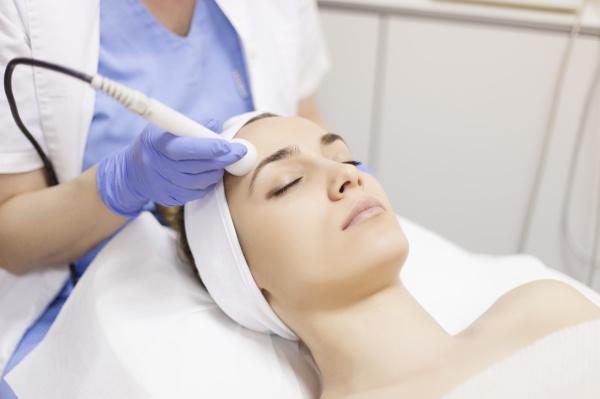Laser therapy can offer a number of great cosmetic benefits, include the ability to reduce the appearance of scars on the face and on the body. Treatment with laser therapy should only be done under the supervision of a highly trained and skilled cosmetic surgeon.
This list of 10 facts you need to know before making your decision to get treatment can help to ensure that you are an educated and informed patient.
- Laser treatments cannot completely remove a scar
It’s important to always be realistic about the types of results that you may see from any cosmetic procedure. Technological advancements have led to lasers being a non-invasive and safe way to treat a number of cosmetic concerns. Cosmetic surgeons rely on them to produce great results for patients who are looking to address a number of concerns. Scars can be reduced in size and color, but cannot be completely erased from your skin. The results, however, are often so remarkable that patients are very satisfied with the reduction in visibility. Your consultation is your opportunity to discuss the type of results that you may see from treatment.
- Laser treatments can offer a number of benefits for scars
Lasers can reduce the appearance of scars that result from injuries, burns and other damage to the skin such as that left behind by acne. They can help patients to see an increase in range of motion if a scar has been limiting movement. They can also prevent the formation of raised scars, scar pain and itchiness after surgery.
According to mole removal specialist, Dr. Omarjee, lasers can also offer a number of other cosmetic benefits, including minimizing the appearance of moles, keloids, birthmarks and other areas of hyperpigmentation on the skin.
- Results may vary
The results that you see will largely depend on the skills of the individual who performs your laser treatment and on the extent of the scarring that is being treated. It’s important to place your trust in only those who have the necessary training and qualifications to perform laser therapy.
If the person who performs your laser therapy is lacking in medical expertise, the laser therapy that you get may not give you the right results. It may even potentially be dangerous. Your consultation with your provider will help you to establish confidence in his or her skills and expertise.
- Medications and supplements may alter your results
During your consultation be sure to provide your surgeon with a list of the prescription medications and the supplements that you are taking. Some medications, such as blood thinners, may result in bleeding during and after the procedure. Aspirin can also have a similar effect. Your surgeon may have you stop taking some of your prescriptions or supplements so that you can heal well from the procedure.
- Your complete medical history matters
It may not seem like your overall physical health and medical history should factor into a cosmetic procedure, but it certainly does. During your consultation it’s important to tell your surgeon about any medical concerns that you have. This could include whether you have high blood pressure or are diabetic. If you are a smoker, you may need to stop smoking before any procedures are completed, as smoking can interfere with the healing process.
If you are prone to cold sores or have active acne flare ups, you may not be a good candidate for laser therapy.
- Your skin will need protection before and after treatment
Laser therapy can help to treat the damage left behind by years of exposure to the sun. However, you can’t use laser therapy on tanned or currently sunburned skin. This could lead to discoloration and potentially serious burns to the skin. Always use good sun creams to protect your face and wear a hat if you’re going to be spending much time outdoors.
Your skin will need to be protected after laser treatment, as it’s going to be very sensitive and prone to damage from the sun.
Be sure to avoid spending too much time in the sun, and definitely avoid spending time in a tanning bed or under a sunlamp.
- You may need multiple treatments
Some patients need just one laser treatment for certain scars and other cosmetic concerns. However, to ensure that patients get the best in results, it’s often recommended that patients undergo several treatments to treat scars. Extensive or deep scarring can benefit from multiple treatments. Expect to have several weeks between your appointments, so that you skin can have a chance to recover and heal from each treatment.
- There’s little to no downtime
Laser therapy is non-invasive, which does translate to needing little to no downtime for recovery after your procedure. Your skin is going to be very sensitive. It’s important to follow your surgeon’s post-treatment instructions so that you can see the best in results. It can also help you to avoid the potential for some of the side effects that are possible after treatment.
Results may not be fully noticeable even after the second treatment. There may be some minor swelling and redness that will ease up as the healing progresses. Working with your cosmetic surgeon, you’ll be able to ensure that you get the best possible results from your laser therapy.











